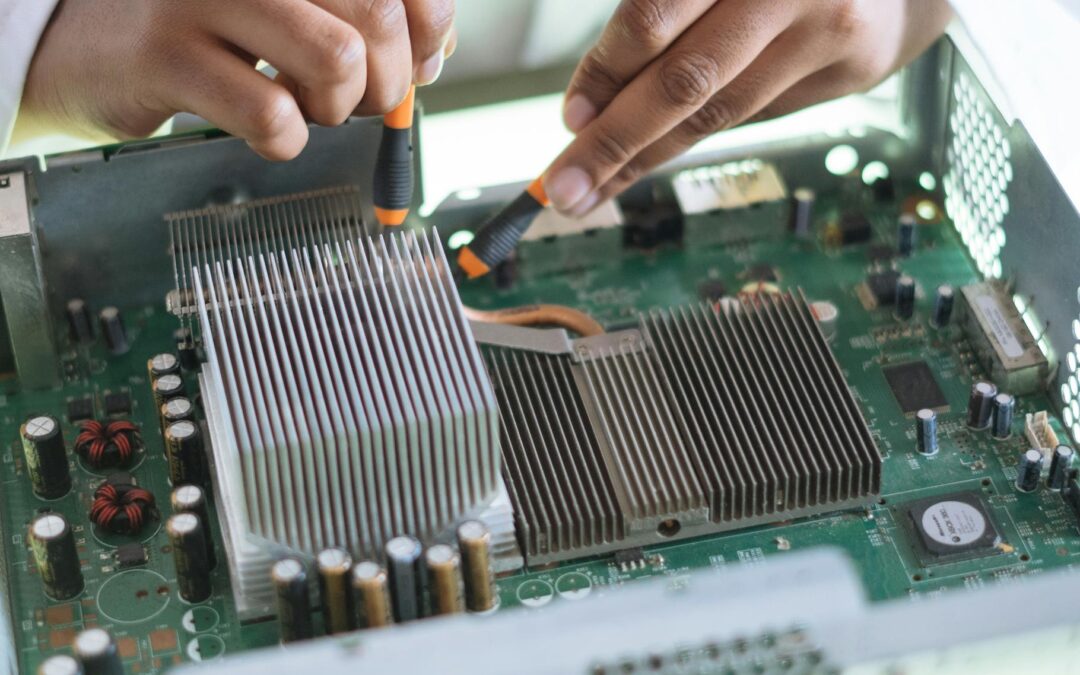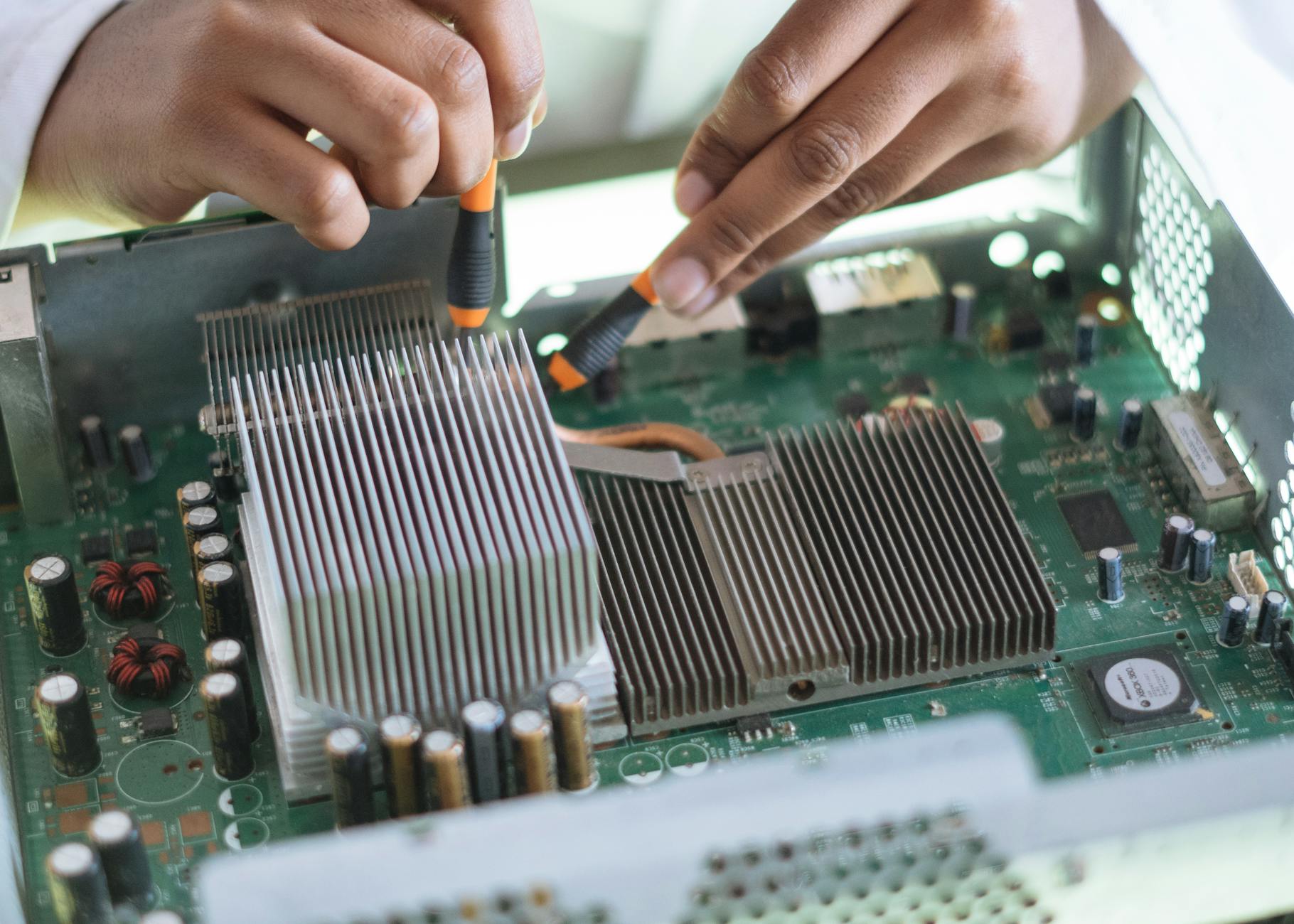Uncover the fascinating evolution of artificial intelligence, tracing its roots from Turing’s groundbreaking work to the cutting-edge technologies today.
Table of Contents
Welcome to our blog series where we delve into the intriguing world of artificial intelligence (AI). In this first post, we will take a trip down memory lane to explore the evolution of AI from its early beginnings to the sophisticated systems we see today. Let’s embark on this fascinating journey together.
Introduction to AI
Artificial intelligence, often referred to as AI, is a field of computer science that aims to develop machines capable of performing tasks that typically require human intelligence. From analyzing data to recognizing patterns, AI systems can mimic cognitive functions and make autonomous decisions. The concept of AI has captivated researchers, technologists, and science fiction enthusiasts for decades.
The Current State of AI
In today’s fast-paced world, AI has permeated various aspects of our lives, revolutionizing industries and shaping our daily experiences. In healthcare, AI is being used to improve diagnostics and treatment plans, while in finance, it powers algorithms for risk assessment and fraud detection. Entertainment platforms leverage AI to recommend personalized content to users, enhancing the overall user experience.
The benefits of AI are evident in its ability to streamline processes, enhance decision-making, and optimize efficiency. Whether it’s predictive analytics in marketing or speech recognition in virtual assistants, AI technologies are transforming the way we interact with information and engage with the world around us.
Challenges and Ethical Concerns
Despite its promising capabilities, AI also presents a myriad of challenges and ethical dilemmas. One of the primary concerns is the potential for AI systems to perpetuate bias and discrimination, leading to unfair outcomes. The issue of privacy and data protection is another critical consideration, as AI systems require vast amounts of data to operate effectively.
Moreover, the rise of AI automation raises apprehensions about job displacement and the future of work. As machines take on tasks traditionally performed by humans, the workforce faces a paradigm shift that demands reskilling and adaptation to stay competitive in an AI-driven economy.
The Future of AI
Looking ahead, the future of AI holds endless possibilities for innovation and transformation. Advancements in machine learning, deep learning, and cognitive computing are propelling AI technologies to new frontiers, enabling systems to learn, adapt, and evolve in real-time.
From autonomous vehicles to smart cities, the integration of AI in various domains promises to enhance sustainability, efficiency, and user experience. As we venture into uncharted territories, it is vital to consider the implications of AI development on society and ethics, ensuring responsible and transparent practices guide future innovation.
Can Skynet Happen?
The infamous depiction of a rogue AI system in the Terminator franchise, known as Skynet, raises the question: could such a scenario become a reality? While the notion of AI surpassing human intelligence and posing a threat to humanity sparks fear and intrigue, the likelihood of a Skynet-like event occurring is a topic of debate among experts in the field.
Factors like AI alignment, control mechanisms, and ethical safeguards play a crucial role in mitigating the risks associated with advanced AI systems. By instituting responsible AI governance and ethical frameworks, we can foster a future where AI coexists harmoniously with humanity, amplifying our capabilities while upholding our values and principles.
Safeguards and Regulations
As the realm of AI continues to expand and evolve, the importance of implementing safeguards and regulations cannot be overstated. Governments, organizations, and researchers must collaborate to establish standards and guidelines that promote the ethical development and deployment of AI technologies.
| Year | Event |
|---|---|
| 1950 | Alan Turing publishes the paper “Computing Machinery and Intelligence”, proposing the Turing Test for measuring AI. |
| 1956 | John McCarthy organizes the Dartmouth Conference, marking the birth of artificial intelligence as a field of study. |
| 1966 | The first chatbot, ELIZA, is created by Joseph Weizenbaum. |
| 1973 | The first AI winter begins as funding for AI research declines due to unmet expectations. |
| 1997 | IBM’s Deep Blue defeats world chess champion Garry Kasparov, showcasing the capabilities of AI in strategic decision-making. |
| 2011 | IBM’s Watson wins the quiz show Jeopardy!, demonstrating natural language processing and machine learning capabilities. |
| 2016 | AlphaGo, developed by DeepMind, beats world champion Go player Lee Sedol in a landmark moment for AI and machine learning. |
| 2020 | Advancements in deep learning and neural networks continue to drive breakthroughs in AI applications and research. |
From data privacy regulations to algorithmic transparency practices, regulatory frameworks can help address the ethical concerns surrounding AI and bolster public trust in automated systems. By enacting responsible AI policies, we can shape a future where AI serves as a force for good, driving innovation and progress while upholding ethical principles.
Ethical AI Design
Ethics lie at the core of AI design, guiding the principles and practices that shape the development and deployment of AI systems. Transparency, accountability, and fairness are key tenets of ethical AI design, ensuring that algorithms are transparent, decisions are explainable, and outcomes are equitable.
By embedding ethical considerations into the fabric of AI development, we can create systems that prioritize human values and rights, fostering trust and credibility in AI technologies. As we navigate the ethical landscape of AI, it is imperative to uphold ethical standards and foster a culture of responsible AI innovation.
AI and Human Collaboration
Far from replacing human capabilities, AI has the potential to augment human intelligence and enhance collaboration between humans and machines. In fields like healthcare, AI-powered diagnostics can aid medical professionals in diagnosing and treating complex conditions, improving patient outcomes and healthcare delivery.
Education platforms leverage AI to personalize learning experiences, adapting content and assessments to meet individual student needs. By fostering collaborative relationships between humans and AI systems, we can unlock new possibilities for creativity, productivity, and innovation in diverse fields and industries.
AI in Popular Culture
The portrayal of AI in popular culture has captivated audiences for decades, shaping our perceptions and imaginations of artificial intelligence. From iconic films like “Blade Runner” to contemporary TV series like “Black Mirror,” AI is a recurring theme that explores the implications of technology on society and human nature.
While fictional depictions of AI often veer into dystopian or utopian scenarios, they reflect our collective fears, hopes, and aspirations regarding the future of AI. By exploring AI in popular culture, we gain insight into the societal impact and moral implications of AI technologies, prompting critical reflections on our relationship with intelligent machines.
Conclusion
As we conclude this journey through the history, challenges, and future directions of artificial intelligence, we invite you to continue exploring the limitless possibilities and ethical considerations surrounding AI. The transformative power of AI lies in our collective ability to harness its capabilities responsibly and ethically, guiding its evolution towards a future where humans and machines coexist harmoniously.
Join us in unraveling the mysteries of artificial intelligence, as we embark on a quest to understand, innovate, and shape the future of AI in a rapidly evolving digital landscape. Thank you for joining us on this enlightening journey through the realms of artificial intelligence.
What is artificial intelligence (AI)?
AI is a field of computer science focused on developing machines that can perform tasks requiring human intelligence, such as data analysis and decision-making.
What are the current applications of AI?
AI is widely used in healthcare for diagnostics, finance for risk assessment, and entertainment for personalized content recommendations.
What are the ethical concerns surrounding AI?
Ethical concerns include bias in AI systems, data privacy issues, and the impact of automation on employment.
How can AI and humans collaborate?
AI augments human intelligence in fields like healthcare and education, enhancing collaboration and unlocking new possibilities for creativity and innovation.


Recent Comments